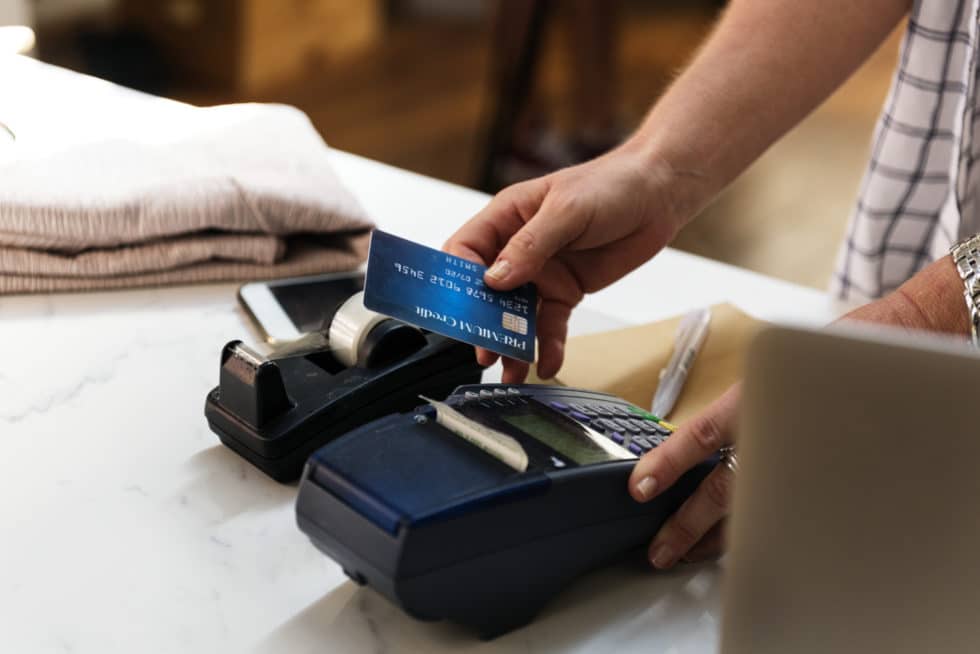Die Standardisierung der Kartenzahlungen
Eine neue Initiative der Schemes kommt auf uns zu – bis dato in Europa noch „unbemerkt“ in USA aber schon im Kommen. Ist es ein letztes Aufbäumen der Schemes, sich doch noch beim Kunden „festzubeißen“ und damit auf der einen Seite ihre getrennten Initiativen Masterpass und Visa Checkout (Ex V.Me) zu retten und sich gleichzeitig gegen PayPal und Apple/Goolge Pay noch einmal „ins Zeug zu legen“. Basis soll die EMVCo’s Secure Remote Commerce Spezifikation sein.
Was heißt das konkret ?
Visa, Mastercard und in Teilen auch AMEX versuchen den Online Checkout Prozess auf der einen Seite zu vereinfachen auf der anderen Seite für Kartenzahlungen zu standardisieren.
Gleichzeitg versuchen sie die “Scheme Tokenisierung (VTS & MDES)” in dem Kontext in den Markt zu drücken. Mit dem Hintergrund v.a. die Propietären Tokenisierungen der PSP’s/ACQ rauszudrängen und selber Kontrolle über die Tokens zu erlangen. Um damit am Ende den Netzwerk LockIn zu erhöhen und mehr Transaktionen auf ihr Netzwerk zu vereinen. Auch mit dem Hintergrund lokale Debit Schemes – die nicht Teil der Tokenisierung sind “rauszuhalten”, um damit die Wahlmöglichkeit für den Endkunden zu reduzieren und letztendlich “Druck” von den Fees zu nehmen. (unter der Nutzung von EMVCo/VTS/MDES Tokens kann der Händler das Routing innerhalb der Netzwerk nicht mehr bestimmen – er muss über Visa/MC gehen)
Man will hier sogar noch einen Schritt weiter gehen – es soll nicht nur die “Möglichkeit des Zahlens” geben – man will die “Customer Ownership”. Vor allem über die Bereitstellung von Daten – wie man sie aus dem Online Checkout kennt – Lieferadresse, Rechnungsadresse – mehr und mehr ein PayPal Copy Cat. Die Needs der Händler stehen hier im Vordergrund.
Waren Visa Checkout und Masterpass bis dato ein Erfolg?
Laut Aussage von Visa und Mastercard laufen die bestehenden Strategien unverändert weiter – es wird sogar mit Zahlen und “Erfolgsmeldungen” um sich geworfen:
Folgende Zahlen finden sich für Visa Checkout im Netz
a) 33 Mio User
b) 350.000 Merchants
c) 1.600 FI’s
klingt viel und groß – dafür haben wir aus meiner Sicht “wenig” gemerkt. Dies kann aber am geographischen Fokus USA liegen.
Masterpass führt Expedia als neuen großen Kunden an und forciert die Integration im POS über Oracle. Visa startet das “Visa Digital Commerce Programm” (VDCP).

Was ist das “Visa Digital Commerce Programm”?
“Visa Digital Commerce leverages EMVCo’s Secure Remote Commerce (SRC) technical framework that eliminates the need for passwords and streamlines and standardizes the end-to-end digital payments process flow across browsers and devices — existing and emerging.”
d.h. das VDCP ist die technologische Implementierung des EMVCo Standards. Nicht mehr und nicht weniger.
Interessanterweise wird hier der POS als Blueprint der Zahlungsexperience verstanden – interessant v.a. da man hier die propietäre Hardwareinfrastruktur “zum modernen Maß der Dinge” hochstilisiert.
“Everybody knows how their cards work today in a store, we want to support that experience online and extend it to any connected endpoint that consumers may want to use in the future to buy something from a merchant”
so wird Visa’s Global Head of Payment Processing, Products and Solutions, TS Anil zitiert.
Dies in Kombinationen mit dem Omnichannel Trend die Kundenzahlungsdaten zur kanalübergreifenden Identifizierung zu verwenden. Man setzt hierbei – wie man es von PayPal und anderen Zahlarten schon kennt – auf das sogenannte Device Fingerprinting als Maßnahme zur Kundenidentifikation. Im Kontext von PSD2 und SCA wird dies aber nicht viel helfen. Eher der “American Way of Payments”.
Was passiert mit Visa Checkout und Masterpass in dem Kontext ?
Im Moment gibt es keine konkreten Aussagen darüber ob SRC die Brands ersetzt, allerdings mit etwas gesundem Menschenverstand, was soll sonst passieren? Natürlich spricht man eher von “Migration”, denn von “Abschalten”.
Verwirrend ist, dass Visa davon spricht seinen “Checkout Händlern” eine Migration anzubieten. Nur werden hier aus Sicht des Händlers zwei Ebenen vermischt. Der Checkout hat sich als Zahlart positioniert. Die SRC ist ein technisches Feature. Zeigt, dass man sich gegenüber dem Händler noch nicht klar ist, wie man die Argumentation aufbaut.
Natürlich will man nicht von einer grundsätzlich neuen Strategie sprechen – denke die Aussage wäre auch falsch
“Our Masterpass efforts over the past few years have shown that consumers and merchants want an easy one-click experience to be consistent across all digital ways to pay.” – aber irgendwie kapituliert man, im Sinne der Online User Experience, vor PayPal – genauso wie PayPal es nie an den POS geschafft hat und hier nun den Schulterschluss mit Google sucht.

Was bedeutet das für den Kunden?
Hoffentlich ein Zusammenführen der aktuell etwas zersplitterten Zahlartenwelt – die Tendenz geht ja eher in die Richtung von “wenigen relevanten Zahlarten”, denn vielen – die Binsen (oder Bauern)-weisheit – jede Zahlart bringt mehr Konversion stimmt nicht mehr pauschal, ab 4-5 Zahlarten tritt ein Grenznutzen ein, das haben auch die Schemes erkannt.
Und das kombiniert mit den Learnings aus der PayPal Welt, was die Kunden wirklich unter einem optimalen Checkout verstehen, führt es auch endlich in der Welt von Visa/MC zur Kundenfokussierung (im Bereich des Checkouts).
Der Kunde sollte eigentlich davon nichts merken oder nur sukzessive leichte Verbesserungen.
Im europäischen Markt sind Masterpass und Visa Checkout noch nicht wirklich angekommen. Daher wird es “die breite Masse” nicht merken. Was gut ist, denn dann fällt die Umgewöhnung leicht.
Fazit und Vermutungen für die Zukunft
- Die beiden Dienste werden “zusammengelegt” – am Ende bleibt es wie es ist – es gibt eine einheitliche “Authentifizierung” und der Rest sind einfach “Kartenzahlungen”
- Amex kommt auch noch dazu. Visa und Mastercard scheinen sich hinsichtlich Richtung und Strategie einig, wobei Visa sich in der “Leading Position”glaubt. Weiterhin ähnelt sich die Situation in der Kartenwelt online der am POS, denn keiner der großen Brands alleine kann sich durchsetzen, man kann nur gemeinsam überleben.
- Es wird ein PayPal Copy Cat: Innovationen sind keine in Sicht – (fast) Follower denn (first) Mover
- Die Schemes sehnen sich im online Kanal nach der Dominanz des POS, werden Sie aber nicht mehr erreichen, nicht mal im engen Schulterschluss. PayPal ist der starke Platzhirsch – Google und Apple werden dazu kommen….




